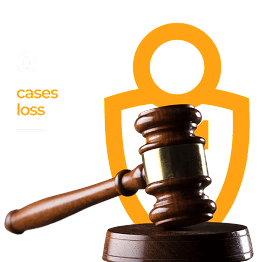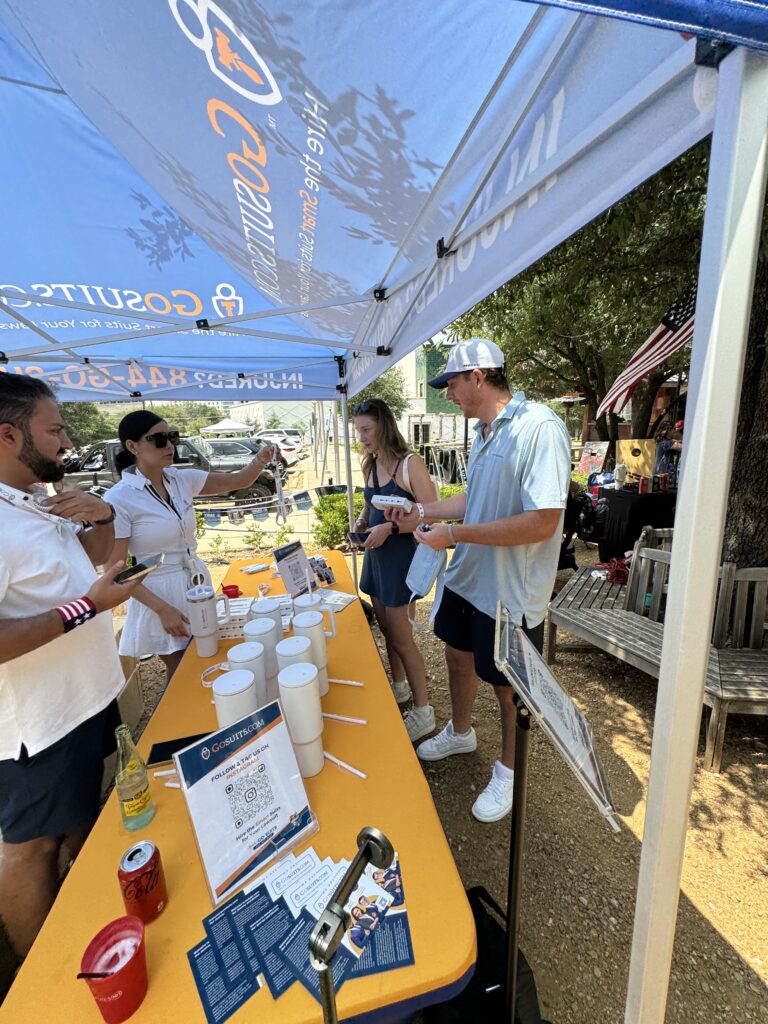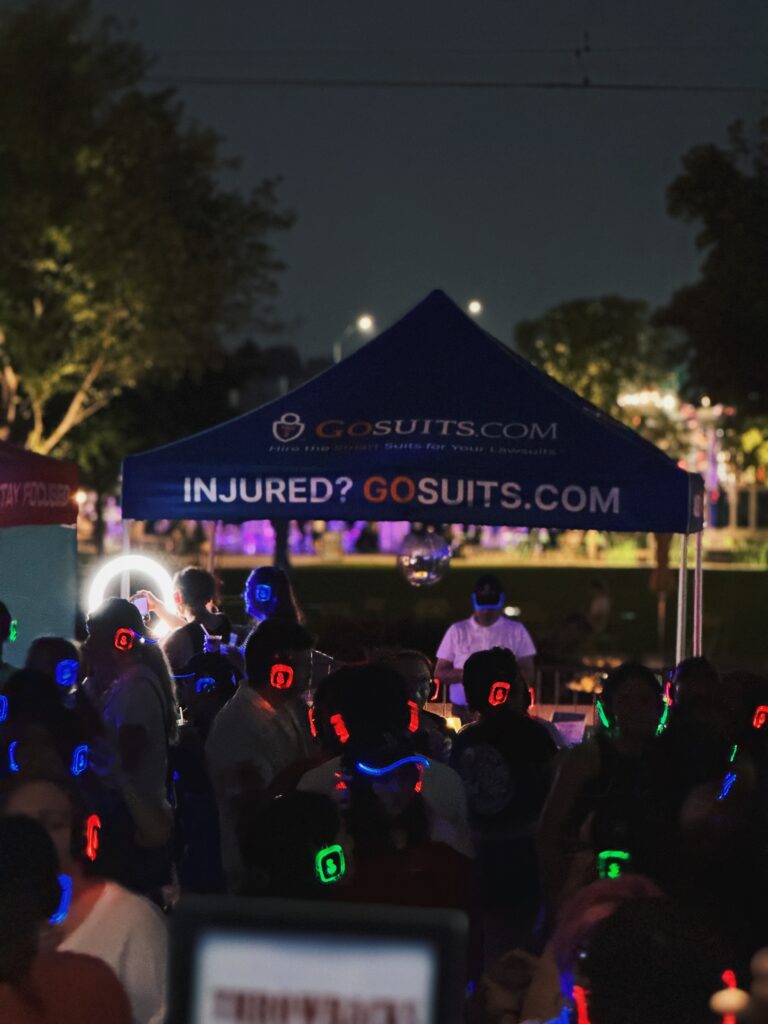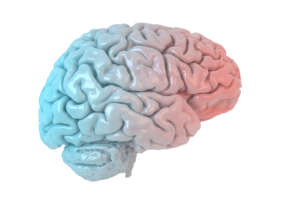Drunk driving crashes are a profoundly concerning and perilous issue affecting countless lives worldwide. Every year, numerous accidents occur due to individuals operating vehicles under the influence of alcohol, leading to devastating consequences for drivers and innocent victims involved. In addition, this dangerous behavior poses a significant threat to public safety, resulting in severe injuries, fatalities, and emotional trauma for all those affected.
Understanding the risks and consequences associated with drunk driving is crucial for raising awareness and taking necessary measures. Before taking any action, contacting our drunk driving accident attorney . is highly recommended to arrange a FREE case evaluation. Our dedicated DUI accident lawyer will meet with you to discuss the various courses of action at your disposal. We acknowledge the difficulties drunk driving accident victims are recovering from and are here to support you.
TEXAS DRUNK DRIVING CRASHES STATISTICS
Driving under the influence is a serious matter that occurs more frequently than many realize. Becoming a statistic by being caught operating a vehicle while impaired is a situation to avoid at all costs. The consequences extend beyond just changes in insurance rates. They can result in significant financial burdens and other severe repercussions. Unfortunately, impaired driving remains a pervasive problem not just in the United States but also in Texas, and the statistics speak for themselves:
- According to the CDC, 229 children (aged 0-14) lose their lives each year due to drunk driving accident cases.
- One-third of car accidents are attributed to drunk drivers, as reported by the NHTSA.
- In 2020 alone, alcohol-impaired drivers caused a staggering $123.3 billion in damages, according to the CDC.
- The NHTSA’s data reveals that in 2017, 32% of fatal car wrecks occurring at night were caused by drunk drivers.
- Fatal car accidents resulting from alcohol consumption double on weekends, as reported by the NHTSA.
- According to the NHTSA, Texas, California, and Florida rank as the three states with the highest number of alcohol-related fatalities, according to the NHTSA.
- MADD highlights that college-aged drivers are involved in 19% of drunk driving accident case.
The NHTSA suggests that raising the minimum drinking age in 1984 potentially saved nearly 32,000 lives.
THE LETHAL COMBINATION: ALCOHOL AND DRIVING AND THE DANGERS IT POSES
Alcohol and driving is a lethal combination that poses significant dangers to both the individuals who choose to drink and drive and innocent individuals on the road. Unfortunately, despite widespread awareness of the risks, the unfortunate reality is that drunk driving incidents still occur, leading to devastating consequences.
Impaired Judgment and Coordination
Alcohol impairs critical cognitive and physical functions necessary for safe driving. It affects judgment, making individuals more likely to take risks and make poor decisions while behind the wheel. Coordination, reaction time, and motor skills are also significantly compromised, making it difficult to navigate the road effectively and react to unexpected situations.
Increased Risk of Accidents and Fatalities
Driving under the influence dramatically increases the risk of accidents and fatalities. Alcohol slows down reflexes, impairs vision, and reduces concentration, leading to erratic driving behavior, such as swerving, speeding, or failing to observe traffic signals. These actions put both intoxicated driver and others on the road in grave danger.
Legal Consequences
Driving under the influence carries severe legal consequences. Law enforcement agencies enforce strict regulations and penalties for drunk driving offenses, including fines, license suspension, mandatory alcohol education programs, and even imprisonment in severe cases. These consequences can have long-lasting effects on personal and professional life, damaging reputations and hindering future opportunities.
Emotional and Financial Toll
Drunk driving incidents often result in devastating emotional and financial consequences. Victims and their families may endure physical injuries, emotional trauma, and even the loss of loved ones. In addition, medical expenses, legal fees, and vehicle repairs can cause significant financial strain, further compounding the already distressing aftermath of a drunk driving accident.
Irreversible Impact
The consequences of alcohol-related accidents can be irreversible. Lives are lost, families are shattered, and survivors may endure lifelong physical disabilities and emotional scars. The pain and trauma experienced by those affected by drunk driving incidents are immeasurable, highlighting the urgent need for prevention and responsible decision-making.
BLOOD ALCOHOL CONTENT LEVEL AS IT RELATES TO DRUNK DRIVING
Blood Alcohol Content (BAC) level is a measure of the amount of alcohol present in a person’s bloodstream. It is commonly used to determine an individual’s level of intoxication and their ability to operate a vehicle safely. Different blood alcohol concentration levels correspond to varying degrees of impairment and are associated with specific legal consequences. Here’s a breakdown of BAC levels and their implications:
BAC Level .01 to .03: At this range, alcohol consumption may result in a slight sense of relaxation and a minor decrease in inhibitions. However, most individuals do not experience significant impairment in judgment or motor skills at this level. It is important to note that even with a BAC below the legal limit for driving, impairment can still occur, especially in combination with other factors like fatigue or certain medications.
BAC Level .03 to .06: As the BAC increases, so does the level of impairment. At this range individuals may exhibit reduced coordination, decreased reaction times, and impaired judgment at this range. These effects can impact a person’s ability to drive safely, increasing the risk of accidents. It is worth noting that in many jurisdictions, a BAC level above .08 is considered legally intoxicated for driving purposes.
BAC Level .06 to .10: Within this range, impairment becomes more pronounced. Individuals may experience significant loss of motor control, impaired coordination, reduced alertness, and impaired judgment. These effects can negatively impact driving skills, increasing the risk of accidents. In many jurisdictions, a BAC level of .08 or higher is considered illegal for operating a vehicle.
BAC Level .11 to .20: At this range, impairment is significant, and individuals may exhibit severe motor control difficulties, impaired balance, blurred vision, and impaired decision-making abilities. Driving under the influence at this level significantly increases the risk of accidents and legal consequences. Penalties for driving with BAC above the legal limit become more severe.
BAC Level .20 & Up: BAC levels above .20 indicate a highly dangerous level of intoxication. Individuals at this level may experience extreme impairment, including severe motor and cognitive dysfunction. They may exhibit slurred speech, impaired memory, confusion, and potential blackouts. Driving with a BAC this high poses a grave risk to oneself but also endangers other road users. Legal consequences for driving under the influence at this level are typically severe.
WHAT TO DO AFTER AN ACCIDENT WITH A DRUNK DRIVER IN DALLAS, TEXAS?
Suppose you are involved in an accident with a drunk driver in Dallas, Texas, it is essential to take the following steps to protect yourself as a DUI accident victim and gather the necessary information:
- Call the Police: Immediately contact the local authorities and report the accident. Inform them that the other driver involved is suspected of being intoxicated. The police officers will arrive at the scene to assess the situation and create an official police report.
- Assess Your Injuries: Check yourself and any passengers for injuries. If anyone requires immediate medical attention, call for an ambulance. Even if you believe your injuries are minor, it is still advisable to seek medical evaluation as some injuries may not be immediately apparent.
- Document Your Damage: Take photos or videos of the accident scene, including the positions of the vehicles involved, any visible damage, and any other relevant details. This documentation will serve as crucial evidence during insurance claims or legal proceedings.
- Obtain the Police Report: Request a copy of the police report once it becomes available. The report will contain important details about the accident, including the suspected drunk driver’s information and any citations or charges filed against them. This information will be valuable for insurance purposes and any legal action you may pursue.
- Consult with a personal injury attorney: It is highly advisable to consult with an experienced personal injury attorney experienced in a DUI accident. They will guide you through the legal process, assess your case’s strengths and weaknesses, and help you pursue the compensation you deserve.
- Establishing liability: Your attorney will investigate the circumstances surrounding the accident to determine liability. This may involve examining police reports, conducting witness interviews, and potentially obtaining evidence from surveillance cameras or other sources. If the drunk driver is found liable, your Dallas drunk driving accident attorney will help you build a strong case to pursue compensation.
LIABILITY FOR TEXAS DRUNK DRIVING ACCIDENT INJURIES
When it comes to drunk driving accident cases in Texas, the issue of liability is a crucial aspect of determining responsibility and seeking compensation for injuries. Texas follows a fault-based system, meaning the person who caused the accident and resulting injuries is typically liable for the damages. Here are some key factors to consider regarding liability for Texas drunk driving accidents injuries:
Negligence
Drunk driving is considered a clear act of negligence. When a driver chooses to operate a vehicle under the influence of alcohol, they are breaching their duty of care to others on the road. This breach of duty can lead to accidents and injuries, making the drunk driver legally responsible for the damages caused.
Dram Shop Laws
In Texas, “dram shop” laws impose liability on establishments that serve alcohol to visibly intoxicated individuals or minors who subsequently cause injuries or damages. If a bar, restaurant, or other establishment overserves alcohol to a visibly intoxicated person who causes a DUI accident, the establishment may share liability for the injuries.
Social Host Liability
Texas does not have specific social host liability laws. However, under certain circumstances, a social host who serves alcohol to a visibly intoxicated person may still be held responsible for injuries caused by the intoxicated individual if it can be proven that the host’s actions were a proximate cause of the accident.
Comparative Negligence
Texas follows the principle of comparative negligence, which means that the injured party’s action may impact their ability to recover compensation. If the injured person is found to have contributed to the accident by, for example, not wearing a seatbelt or engaging in reckless behavior, their compensation may be reduced proportionally to their level of fault.
Seeking Compensation
Suppose you have been injured in a Texas DUI accident, you may be entitled to seek compensation for various damages, including medical expenses, lost wages, pain and suffering, and property damage. It is crucial to gather evidence such as police reports, witness statements, and medical records to support your claim.
Criminal Proceedings
In addition to civil liability, drunk drivers may also face criminal charges in Texas. Criminal charges can result in fines, license suspension, probation, or even imprisonment. However, criminal proceedings are separate from civil claims for compensation, and the outcome of one does not necessarily determine the outcome of the other.
COMMON INJURIES IN IMPAIRED DRIVING ACCIDENTS
Impaired driving accidents can result in various injuries, some of which can have long-lasting physical, emotional, and psychological effects on the victims. Here are some common injuries that can occur in impaired driving accidents:
Traumatic Brain Injuries (TBIs): These are among the most severe and potentially life-altering injuries that can result from impaired driving accidents. TBIs can range from concussions to more severe forms like skull fractures or intracranial hemorrhages. The impact of a TBI can lead to cognitive impairments, memory loss, mood changes, and even permanent disability.
Back and Spine Injuries: Impaired driving accidents can cause back and spinal injuries such as herniated discs, fractures, or spinal cord damage. These injuries can result in chronic pain, limited mobility, paralysis, or even complete loss of motor function, depending on the severity of the injury.
Psychological Injuries: Impaired driving accidents can have a significant psychological impact on victims. Post-Traumatic Stress Disorder (PTSD), anxiety, depression, and other psychological conditions may develop due to the traumatic nature of the accident and resulting injuries. Victims may require ongoing therapy and support to cope with the emotional aftermath.
Disfigurement Injuries: Severe impaired driving accidents can cause disfigurement injuries, including burns, lacerations, or amputations. These injuries may require extensive medical treatment, surgeries, and rehabilitation. The physical scars can have a profound impact on a victim’s self-esteem and overall quality of life.
Broken Bones: Fractures and broken bones are common in high-impact accidents. Victims may suffer fractures in the limbs, ribs, pelvis, or other parts of the body. Depending on the severity and location of the fracture, extensive medical treatment, surgeries, and physical therapy may be necessary for recovery.
Whiplash: Whiplash is a common injury in rear-end collisions, which can occur in impaired driving accidents. It affects the neck and occurs due to the sudden back-and-forth movement of the head. Whiplash can result in neck pain, stiffness, headaches, and reduced mobility.
Chest Injuries: The force of an impaired driving accident can cause chest injuries, such as broken ribs, lung contusions, or damage to internal organs. These injuries can be hazardous and may require immediate medical attention.
WHAT CAN YOU RECOVER IN A TEXAS DRUNK DRIVING ACCIDENT CLAIM?
In a Texas, Dallas drunk driving accident claim, victims may be eligible to recover various types of damages depending on the specific circumstances of the case. Here are some common types of compensation that can be sought:
Past and Future Medical Expenses: This includes reimbursement for medical bills related to the accident, such as hospitalization, surgeries, medication, rehabilitation, therapy, and any necessary future medical treatment required for ongoing care or recovery.
Lost Wages and Diminished Future Income: If the victim is unable to work due to their injuries, they may be entitled to compensation for lost wages. This includes the wages they could not earn during their recovery period and any future income they may lose due to long-term or permanent impairment.
Scarring and Disfigurement: Victims who sustain visible scars or permanent disfigurement as a result of the accident may be eligible for compensation to address the physical and emotional impact of these injuries.
Emotional Distress: A DUI accident’s emotional and psychological impact of a DUI accident can be significant. Compensation may be sought for emotional distress, including anxiety, depression, post-traumatic stress disorder (PTSD), and other mental health conditions resulting from the accident.
Physical Impairment: If the victim experiences long-term or permanent physical impairment or disability due to the accident, they may be entitled to compensation to address the limitations and challenges they face as a result.
Pain and Suffering: This includes compensation for the physical pain and emotional suffering endured as a direct result of the accident and the resulting injuries. The amount awarded for pain and suffering can vary depending on the severity of the injuries and their impact on the victim’s life.
All Other Related Expenses: Victims may be able to recover other related expenses resulting from the accident, such as property damage, transportation costs for medical appointments, home modifications to accommodate disabilities, and any additional costs directly associated with the injuries sustained.
DO NOT SETTLE WITHOUT FIRST TALKING TO A DUI ACCIDENT ATTORNEY
Thertely no justification for engaging in intoxicated driving. Drunk driving accidents should not be dismissed as mere “accidents.” They are the direct result of a series of irresponsible decisions made by the intoxicated driver. Jurors are fully aware that they could have easily been the victims of the same drunk driver. They empathize with the victims and understand that the drunk driver knowingly violated the law, endangering innocent lives.
Consequently, juries are typically unsympathetic towards drunk drivers during legal proceedings. Insurance companies are well aware of this sentiment and will go to great lengths to downplay these cases. However, with a skilled and assertive drunk driving accident lawyer on your side, they will be compelled to provide you with appropriate compensation.
Following an accident, insurance companies often reach out to victims promptly, offering insultingly low settlement amounts, less than 5 percent of the estimated value of the case. They may even visit your home and present you with a check on the spot, requiring your signature on a document that absolves their driver and their company from any further financial responsibility.
You mustn’t sign anything or allow yourself to be convinced into accepting an unfair settlement offer from an insurance company. If they are pushing for a quick settlement, it is likely because they want to avoid you consulting with a drunk driver accident lawyer and realizing the true worth of your case. Before making any decisions, contact Chalaki Law, P.C. to schedule a no-obligation and free case evaluation. Our team will meet with you and explain the options available to you. We understand that recovering from your injuries is already challenging enough. Allow us to handle the insurance company on your behalf, ensuring you receive the maximum possible compensation for your situation.
HOW CAN A DALLAS DRUNK DRIVING ACCIDENT LAWYER HELP YOU?
A Dallas DUI car accident lawyers can provide valuable assistance throughout the legal process, advocating for your rights and helping you navigate the complexities of your case. Here are some ways a drunk driving injury attorney can help you:
Legal Guidance: DUI accident attorneys will provide legal advice and guidance for your case. A drunk driving accident lawyer will explain your rights, assess the strength of your claim, and guide you through the entire legal process, ensuring you understand each step along the way.
Investigation: A drunk driver accident attorney will conduct a thorough investigation into the accident to gather evidence and determine liability. They will review police reports, obtain witness statements, analyze medical records, and collect any other relevant evidence to build a strong case on your behalf.
Establishing Liability: Proving liability in a drunk driving accident case can be complex. A skilled drunk driver lawyer will help establish that the driver was intoxicated, that their intoxication caused the accident, and that you suffered injuries and damages. In addition, a drunk driving accident attorney will handle all the legal aspects, including gathering evidence, consulting with experts, and preparing a solid argument to establish liability.
Dealing with Insurance Companies: Insurance companies may try to minimize your claim or offer a low settlement. Drunk driving accident attorneys will handle all communications and negotiations with insurance companies on your behalf, ensuring your rights are protected and fighting for fair compensation. They will work to maximize your recovery and ensure you receive the full amount you deserve.
Calculating Damages: Determining the value of your claim is crucial. Drunk driving accident attorneys will assess the full extent of your damages, including medical expenses, lost wages, future income loss, pain and suffering, emotional distress, and other applicable damages. They will use their experience and knowledge to ensure all relevant damages are considered, helping you pursue appropriate compensation.
Court Representation: A lawyer will represent you in court if a fair settlement cannot be reached through negotiations, a lawyer will represent you in court. They will prepare and present a compelling case, present evidence, cross-examine witnesses, and advocate for your rights before the judge and jury. Their goal is to secure a favorable outcome on your behalf.
Support and Guidance: Dealing with the aftermath of a drunk driving accident can be emotionally and physically challenging. A lawyer will provide compassionate support throughout the process, addressing your concerns, answering your questions, and guiding you with empathy.





















































